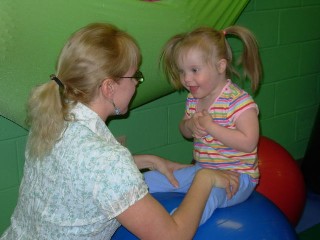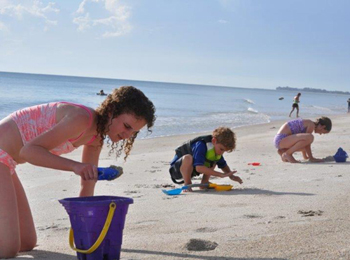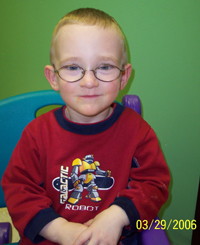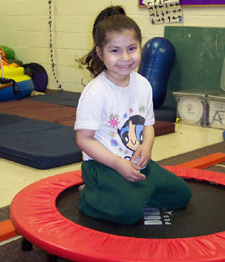
|
Pediatric Occupational, Physical, ABA/Behavioral, Feeding, Speech, and Language Therapies Main Clinic: 931-372-2567 1445 East 10th Street Cookeville, TN 38501 Email: [email protected] HIPAA Secure Email: [email protected] Fax: (931) 372-2572 ABA Clinic: 931-201-9534 400 Dubois Road Cookeville, TN 38501 Email: [email protected] Please call today to get started! Most insurances accepted! |

|
| Who needs therapy? | SE HABLA ESPAÑOL |
|
Home
> Which Therapy is Best for My Child?
Which Therapy is Best for My Child? |

|
|
Who needs therapy?
Let's face it, parents wear many hats...nurse, chauffeur, coach, teacher, maid, chef, interior decorator, therapist, CFO, CEO, you are amazing! Too often parents are overwhelmed and under qualified to be the only ones caring for your child's developmental, educational, medical, and emotional needs. Proper development is a complexly interwoven miracle with motor skills, emotions, cognition, nutrition, sensory processing, language, vision, and perceptual abilities all needing attention.
It often takes the services and many years of knowledge gained from a professional licensed therapist to really help a child develop to their fullest potential. We are here for you, to help educate you and help you and your precious one!
It also takes educational based therapies such as TEIS or school based AND medical based therapies to address all of a child's needs. Medical based therapy services are 1:1 and often more intensive, a child should have both educational and medical therapies to reach their maximum potential.
When does a child need therapy interventions and which therapy is best for their needs?
Occupational Therapy
Occupational Therapy is designed to help an individual reach their maximum potential in any or all of their "occupations" of life such as: being a happy baby gaining motor skills, an exploring toddler, eager to learn preschooler and attentive school age child.
Skills addressed in pediatric OT sessions include treatment for: self help, fine motor, writing, cutting, motor coordination, balance, visual motor skills, ability to accept textures on skin, sensory processing of touch, movement, sounds, and environments, ability to calm, self regulate and be ready to learn. We also work on ADL's- activities of daily living such as life skills.
Children at any age who are having difficulty with their "occupation" due to delays in areas of development or sensory issues often qualify for medical based therapies under insurance plans.
Therapy is fun and engaging for a child and will help speed up developmental skills and create independence for your child.
Therapy sessions also help educate caregivers on how to help a child develop and grow in their skills!
Speech & Language Therapy & Oral Sensory/Feeding Therapy
Speech therapy is designed to help an individual reach their maximum potential with communication skills. Speech and language therapy is for anyone experiencing delays in forming sounds, words, sentences, poor speech patterns, stuttering, poor language skills (expressive and receptive language), poor oral sensory motor skills (difficulty feeding or eating food textures), and/or difficulty with social speech patterns.
Speech therapy can help a child learn to express themselves, to decrease frustration and negative behaviors.
Feeding therapy can also help a picky eater expand their food choices to include healthier foods or develop good oral motor skills to swallow, chew and handle textures.
Speech therapy can also work on social pragmatics and cognitive (receptive) skills.
We offer group based social skills and OT services as well!
We also work with insurance companies to help get approval for AAC devices including Dynavox and IPAD speech communication apps and work 1:1 for programming and training on how to use augmentative communication devices.
All speech therapies at Center of Development are 1:1 with therapist and child. Medical based speech therapy is often much more intensive than educational based services. Children who are delayed in speech skills often need this calm 1:1 environment to build self esteem and practice new speech patterns before feeling the confidence to do this in a group.
Physical Therapy
Physical therapy focuses on treatment of orthopedic and structural problems such as decreased range of movement, stiffness or tightness of muscles or joints, pain, or muscle weakness. Physical therapy also works to improve a child's gross motor skill development which involves the larger movements the body needs to develop properly. These include rolling, creeping, walking, jumping, hopping, skipping, balancing, kicking, catching, and throwing.
Clinical physical therapy is different than in school-based therapy with more time to work 1:1. Some children may need both educational and medical therapies to have optimal functional improvement. Physical therapists in the clinical setting may perform manual therapies and modalities that cannot be done under the scope of care in a school setting.
Physical therapy is beneficial for infants with torticollis (stiffness of the neck), as well as for children with scoliosis or curvature of the spine, to decrease the likelihood that these conditions will become severe as the child grows.
Physical therapy can also help those who have difficulty with coordination, balance, or physical performance for sports activities.
Physical therapy can help with athletic or other muscle injuries in school aged children.
PT also is beneficial for children with Dyspraxia (Developmental Coordination Disorder), gross motor developmental delays, CP or Brain Injuries.
Our PT's also have training in Myofascial Release and Total Motion Release techniques for optimal progress and outcomes!
PT also works with Durable Medical Equipment providers to help get appropriate equipment needs met.
Neuro-Visual Therapy with Center of Vision
Vision therapy is much different than it was 10 years ago. Orthoptics is an old school set of therapy dealing with aligning of the eyes. It comes from "ortho" meaning "straight" and "optics" meaning "eyes".
With new technology, much research, and a better understanding of the neurological causes of eye turns we can now straighten the eyes without cosmetic eye muscle surgery.
Neuro-Visual Therapy is backed by extensive scientific studies to support keeping a child from undergoing surgery to fix eye turns. Gone are the days of patching and just using visual exercises, there are huge advancements in research that support vestibular-visual based therapies for strabismus.
Neuro-visual rehabilitation (NVR) is the science based treatment of how the brain processes information from the eyes, vestibular (balance system), proprioceptive (joint and muscles) and entire neurological system.
NVR is available for individuals with reading delays, eye movement disorders, difficulty focusing at near, Convergence Insufficiency, visual perceptual delays, visual-vestibular processing issues, and reversal patterns (like dyslexia).
Vision therapy is also used to enhance sports performance. It is used with professional athletes like: Larry Fitzgerald of the Arizona Cardinals, Mark Maguire, Apollo Ono, and the US Olympic Volleyball team and many others. Athletes have known the benefits from NVT for many years.
NVT can greatly benefit children having difficulty with focusing in school, learning, headaches, poor attention & focus, or with a visual diagnosis like Strabismus or Convergence Insufficiency.
Center of Development works directly with Center of Vision's Dr. Jason Clopton, the only Board Certified Fellow of the College of Vision Development in the Upper Cumberland for neuro-visual therapies. Dr. Clopton lectures and trains other doctors all over the world on the newest research and neurology of vision.


Site empowered by
WebOnTheFly